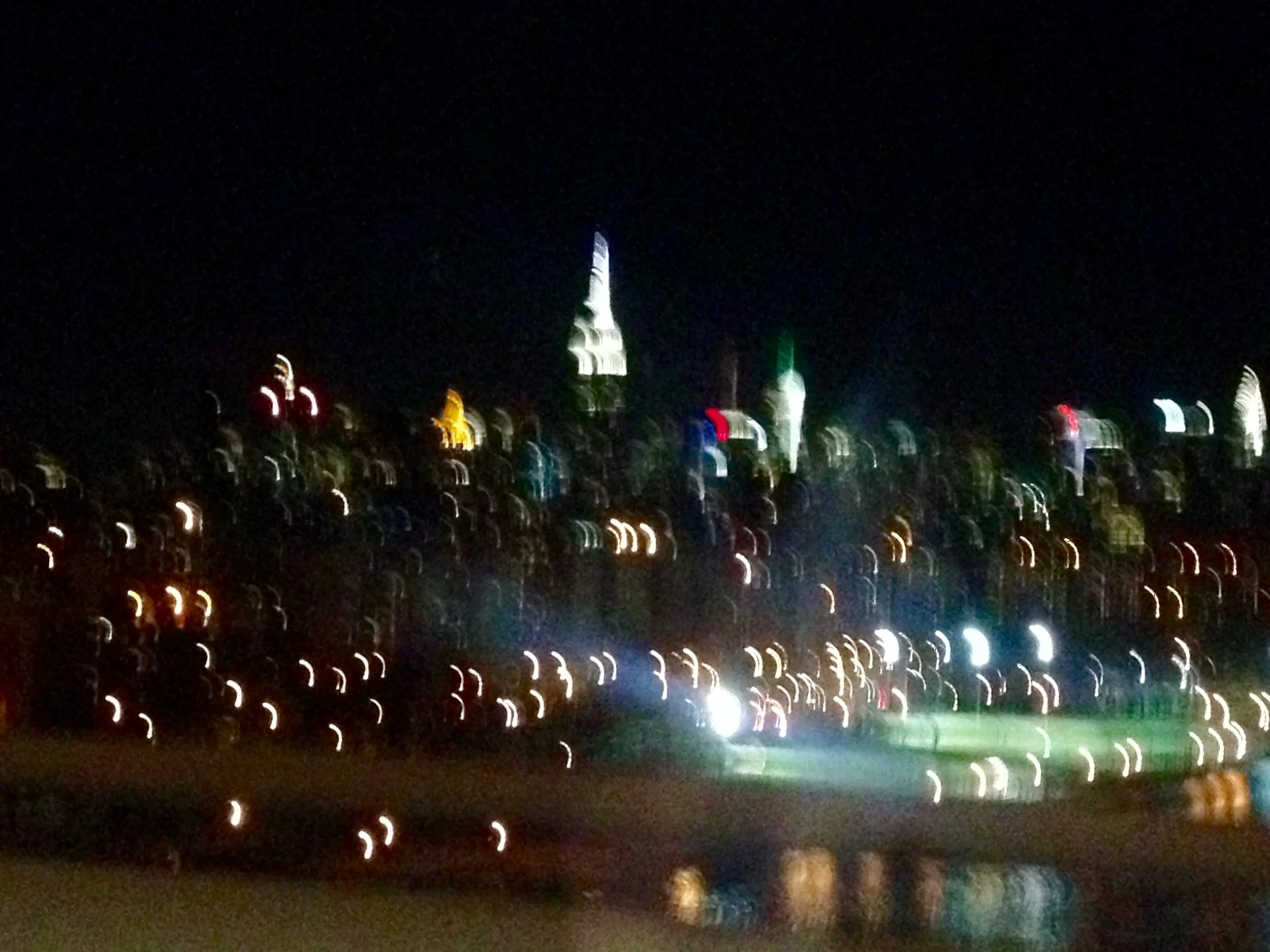Waxing Lyrical on Bob Dylan
/By Prune Perromat
Bob Dylan with Allen Ginsberg on the Rolling Thunder Revue in 1975. (Photo: Elsa Dorfman via Wikipedia)
"Praise be to Nero’s Neptune
The Titanic sails at dawn
And everybody’s shouting
“Which Side Are You On?”
And Ezra Pound and T. S. Eliot
Fighting in the captain’s tower
While calypso singers laugh at them
And fishermen hold flower
Between the windows of the sea
Where lovely mermaids flow
And nobody has to think too much
About Desolation Row"
- Bob Dylan, 1965
If one believes that Bob Dylan does indeed have “the blood of the land in [his] voice,”* then America is saved. Across the country, for many months, there has been a very loud voice - a voice uttering simplistic ideas and language, commandeering the country's attention. It was Goethe who said, "the decline of literature indicates the decline of a nation." Waking up yesterday to news that the champion of a rebellious yet subtle poetic vernacular had been recognized as one of the greatest writers of our time, suddenly overshadowed everything else: beauty, music and complexity had prevailed. Suddenly America could focus on another voice, another language, defined by nuance, imagination and meticulously placed words.
Those across America who, like Mona Lisa, have the “highway blues” should now find a reason to smile, to enjoy this respite in a reality that occupies the freewheeling and rhythmic land of Dylan’s words and rhymes.
Inside the museums, Infinity goes up on trial / Voices echo this is what salvation must be like after a while/ But Mona Lisa musta had the highway blues / You can tell by the way she smiles
- "Visions Of Johanna", Blonde on Blonde (1966)
In canonizing Bob Dylan’s work, the Nobel Prize Committee may have surprised many who expected a more traditional representative of literature – the novelist; the poet; the short story writer. But with its choice of Dylan the Stockholm gang did, in fact, return to the very root of the prize, which is to recognize “the most outstanding work” in a field that encompass “not only belles-lettres, but also other writings which, by virtue of their form and style, possess literary value.”
They're selling postcards of the hanging / They're painting the passports brown / The beauty parlor is filled with sailors / The circus is in town
- "Desolation Row", Highway 61 Revisited (1965)
Dylan's talent in translating, with incomparable precision, feelings of despair and anger, love and scorn, hate and admiration, is just one validation of his literary gifts. But he has done more than write beautifully. With pointed words and memorable rhyme, he embraced a tradition while breaking grammatical and narrative codes, reinventing the way pop songs are conceived and perceived. And as strong and striking as they are on paper, Dylan’s words have never found their full expression as powerfully as when they’re carried by the strange and unmistakably raw voice of the famous bard.
She was working in a topless place / And I stopped in for a beer / I just kept looking at her side of her face/ In the spotlight so clear / And later on as the crowd thinned out / I was just about to do the same / She was standing there in back of my chair / Said to me "Don't I know your name?" / I muttered something underneath my breath / She studied the lines on my face / I must admit I felt a little uneasy / When she bent down to tie the laces of my shoe / Tangled up in blue.
- "Tangled up in Blue", Blood On The Tracks (1975)
Listening and re-listening to countless Dylan songs over the past two days, I have been immersed in a world where a girl’s biggest sin, “is her lifelessness” ("Desolation Row," Highway 61 Revisited, 1965); where “Infinity goes up on trial” / left “all alone on the banks of Belle Isle,” ("Belle Isle", Self-Portrait, 1970) I found myself “in the great north woods/ Working as a cook for a spell”, stopping in for a beer at “a topless place” or boarding a “fishing boat/ Right outside of Delacroix” ("Tangled up in Blue", Blood On The Tracks, 1975).
Lost in Dylan’s words, one can’t help but take the road - deeply rooted in the American folk tradition - to a place where Rimbaud, Dylan Thomas, Woody Guthrie and Allen Ginsberg are waiting. It's a place with Gospel and Rock Blues, where poetry governs and, with it, the infinite freedom of literary creation. LSP

